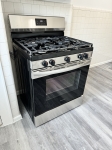For seniors — and for those with seniors in their lives…
See, this suggests the relationships are either about dependency/rescuing; or almost forcing ‘safety’ on an elder, or having infrequent contact if they won’t agree to your terms...because ‘life’s so busy’. I’m not so sure it needs to be either.
Lots of my families have worked out a happy medium where the elder will accept some support (for cleaning, or shopping/medical visits, etc), installed some different alarms and the contact schedule changes. And the content of their conversation changes, too, with a lot of the tensions dropped. Kinda reminds people why they love each other
Well, I don’t recall reading a Times article this month, but it won’t let me past the paywall. 
I’d really like to know what the objection is, to the urine testing because it’s a critical part of female health care, and elder health care. UTIs can affect not only gut health and balance but also cognition. There are some simple ways to overcome infection that don’t require antibiotics (and washing your hands in warm soapy water while singing Happy Birthday is one of them), but sometimes you really need that extra help.
It’s such a common routine in a doctor’s office or clinic or hospital that patients tend to comply without thinking: Step on the scale, roll up your sleeve for the blood pressure cuff, urinate into a cup.
But that last request should prompt questions, at the least. The urine test is the first step into what’s sometimes called “the culture of culturing.”
In patients who have none of the typical symptoms of a urinary tract infection — no painful or frequent urination, no blood in the urine, no fever or lower abdominal tenderness — lab results detecting bacteria in the urine don’t indicate infection and thus shouldn’t trigger treatment.
Older people, and nursing home residents in particular, often have urinary systems colonized by bacteria; they will have a positive urine test almost every time, but they’re not sick.
Yet such test results, signifying what’s known in doctor-talk as asymptomatic bacteriuria, frequently lead to unnecessary treatment with antibiotics. Public health leaders and researchers have battled for years to persuade providers to stop reaching for their prescription pads every time a urine test comes back positive.
They have been only modestly successful. A recent study in 46 Michigan hospitals, for instance, found that of 2,733 patients with asymptomatic bacteriuria (average age: 77), almost 83 percent received a full course of antibiotics. The odds of this overtreatment rose 10 percent with each decade of age.
“We now recognize that there’s a strong cognitive bias,” said Dr. Christine Soong, head of hospital medicine at Sinai Health System in Toronto and co-author of a recent editorial on the subject in JAMA Internal Medicine. “Once a clinician sees bacteria in the urine, the reflex is, you can’t ignore it. You want to treat it.”
Now, the campaign has changed from trying to prevent needless treatment to trying to curtail the testing that prompts it. If concerned doctors can’t dissuade their colleagues from treating these non-infections, they’re trying to discourage them from ordering urine tests in the first place.
The very reserved headline on Dr. Soong’s editorial was: “De-adoption of Routine Urine Culture Testing — A Call to Action.” It probably should have been: “For Crying Out Loud, Stop With the Pee in the Cup.”
Thank you for posting that article.
i think I’d worry if my GP just ‘routinely’ requested a battery of tests like that.... there’s an annual cycle, sure, and maybe an infection might be detected while those tests are performed. Otherwise we only do tests in response to signs and symptoms.
That cartoon is cute 
Today’s Times article hit home with me. Since my husband of almost 64 years died last year, I have managed well in some areas, but interest in food ended. Even as friends and family invite me to lunches and dinners, the food presented before me is mostly packed up in doggy bags to be eaten at home — or tossed. Lighting the stove is way too much effort. Microwave meals, while fulfilling the purpose, are either gross or just unappealing.
https://www.nytimes.com/2019/10/28/dining/widows-cooking-grief.html
I have lost weight, but not in a good way. Supplements abound in my pantry!
After reading this, I see my behavior as yet another grief process. Thanksgiving Day food consumption looms ahead!
I have spent spent weeks — at all hours of the day and night — registering on multiple sites, to obtain a Covid vaccine shot, and met consistently with the comment that there were no time slots available. This past Tuesday, I got my first shot; the second is scheduled in March.
This miracle took place because an “angel”, I do not know, successfully took on the challenge.
Here is more about what is happening —off the record and out of the spotlight — by volunteers.
Glad to hear you’ve had the first shot, mtierney, also that you’re well.
since my own eating hasn’t been ‘normal’ of late (nothing to worry about, just an effect of treatment), I was wondering how you’re going with your own nutrition, especially with winter being so cold?
That volunteer group is doing wonderful work.
https://www.nytimes.com/2021/02/22/well/live/snow-ice-safety.html
Good advice for oldsters and the not yet old folks.
https://www.nytimes.com/2021/03/06/business/living-to-100-retirement.html
Financial advice for centenarians....
mtierney said:
Covid fall-out...
https://www.nytimes.com/2021/03/11/well/family/grandparents-grandchildren-apart.html
Well, maybe had a certain president taken this more seriously, we wouldn't have lost the year.
Update on your vaccination card....
mtierney said:
Update on your vaccination card....
At this time there appears to be no provision in New Jersey for people who are vaccinated at the county sites (like Sears) to get replacement cards, so it is encouraged that you photograph your card and store it in a safe place. If you want to carry it, carry a copy not the original.
The weather is getting welcoming, the flowers, plants, and birds are reminding you that there is much work to do outdoors, but the housebound elderly population, grown fearful, might respond to this encouraging news...
https://www.nytimes.com/2021/03/31/well/move/seniors-memory-walking.html
COVID repercussions might prove to have positive ramifications for elder care in the U.S.
https://www.politico.com/news/agenda/2021/04/30/nursing-home-future-483460
When social media works miracles amidst an unbelievably deadly outbreak of COVID...
https://www.nytimes.com/2021/05/03/world/asia/india-covid-social-media-aid.html
Who knew about P.A.C.E.? More importantly, why not?


To the Editor:
Re “Rethinking Nursing Home Care, Even With Vaccines” (news article, May 9):
Families don’t have to decide between caring for aging parents at home with help from hired aides or sending them to live in nursing homes.
Since the 1970s, Medicaid has paid for people 55 and over to receive nursing home-level care outside of nursing homes through a care model known as Program of All-inclusive Care for the Elderly, or PACE. PACE is widely recognized as the gold standard of care for keeping nursing home-eligible seniors healthy and safe in their own homes, while offering comprehensive medical care, social activities, meals and other support at PACE centers, almost always at far lower cost than institutional care.
Inexplicably, however, PACE has never received the support and promotion it deserves from the federal and state agencies that administer Medicaid. As a result, many families remain unaware that such an alternative is even available.
It’s time for policymakers to establish clear plans for reducing the number of seniors who are living in nursing homes unnecessarily and would be better and more safely cared for in their own homes.
Formerlyjerseyjack said:
it is by state option. Does N.J. subscribe to this?
Good question! Since I had not learned about this when my husband was in Hospice care at home, it may not be. 
After the scandalous nursing home failures during the pandemic, this option might have saved many lives.
Post pandemic reunion with parents takes advance planning...
https://www.nytimes.com/2021/05/21/well/visit-aging-parents.html
Important information for seniors and their families…
https://www.nytimes.com/2021/10/02/health/elderly-health-care-finances.html
Formerlyjerseyjack said:
it is by state option. Does N.J. subscribe to this?
Jersey City and South Jersey. Dang it would be so good to be widely available, from the sounds of it!
Scary for seniors and their families when new scientific studies seemingly contradicts long held practices. Recently the importance of taking a baby aspirin daily was brought into question, after decades of instructions to patients to do so.
Today’s NYT Science section has taken the question of whether a diagnosis of chronic kidney failure is a disease, or normal aging slowdown of function.
https://www.nytimes.com/2021/11/01/well/live/chronic-kidney-disease-failure.html
This question is not for me, but for my son-in-law's parents in Arizona. They are both seniors, not in the best of health. The father had Covid symptoms and now has tested positive, while his wife has significant health issues and can't be left alone; plus, she likely will herself catch Covid from him. Under better circumstances, my son-in-law would travel there from his home in Washington State. However, he himself, his wife (my daughter), and their kids all are ill with Covid, too (and their daycare center is presently closed). If his father has to go to the hospital, who will take care of his mother?? Unfortunately, they have no caretaking arrangements in place. Any suggestions for what they could do would be most appreciated. (We're obviously thousands of miles away and are ourselves seniors.) Thanks.
Ca n I ask a question on a slightly different topic but relevant to the thread?
Does anyone else use Express Scripts Medicare home delivery service? As of January 1, Cigna has taken over the Express Scripts business. As a result, my monthly premium has more than doubled. And some meds are more expensive. Anyone else been migrated to Cigna with a large increase in premiums?
Sponsored Business
Promote your business here - Businesses get highlighted throughout the site and you can add a deal.


















Joanne, believe me, I understand cantankerous old folks! Here’s is a bit more — Jamie disapproves of lengthy copy and paste..
Here’s is a bit more — Jamie disapproves of lengthy copy and paste..
“Such clashes, and related reports of stubbornness, increase when the parent and child live together, she found. Perceived stubbornness also rises when a parent’s disability increases.
“When a child steps in, most commonly there’s a safety issue,” Dr. Heid said. “The parent may not share those feelings about their capabilities.”
These familiar, probably universal, safety-versus-autonomy debates have led some critics to object that adult children overemphasize the former, when what matters more to their parents is maintaining independence and pursuing what they find meaningful.
When parents feel thwarted, does resistance really constitute stubbornness? Perhaps their children, who in these studies were not serving as hands-on caregivers, were domineering or intrusive.
Stubbornness might actually be a positive trait, Dr. Heid suggested. It shows tenacity, persistence, a sense of control.
But stubbornness, it turns out, can also have hurtful consequences. In Dr. Heid’s largest study, involving nearly 400 middle-aged children, the most common response was avoidance: Children back off and let the contested issue go.
“But when they do, they report more depressive symptoms and less positive relationships,” Dr. Heid said. “They may be internalizing their distress.”
Arguing with one’s parents has similarly unhappy outcomes. What helps, the study shows, is reasoning. “It allows for a more open exchange of views and more discussion,” Dr. Heid said.
Reasoning with someone who seems impervious to it sounds, well, challenging. “It’s a really hard thing, this mismatch between what we need and what we want and what’s good for us,” said Marci Gleason, a social psychologist at the University of Texas at Austin.
Social scientists have learned that older adults who provide support have increased well-being and better health. Receiving help, on the other hand, is associated with negative mood.